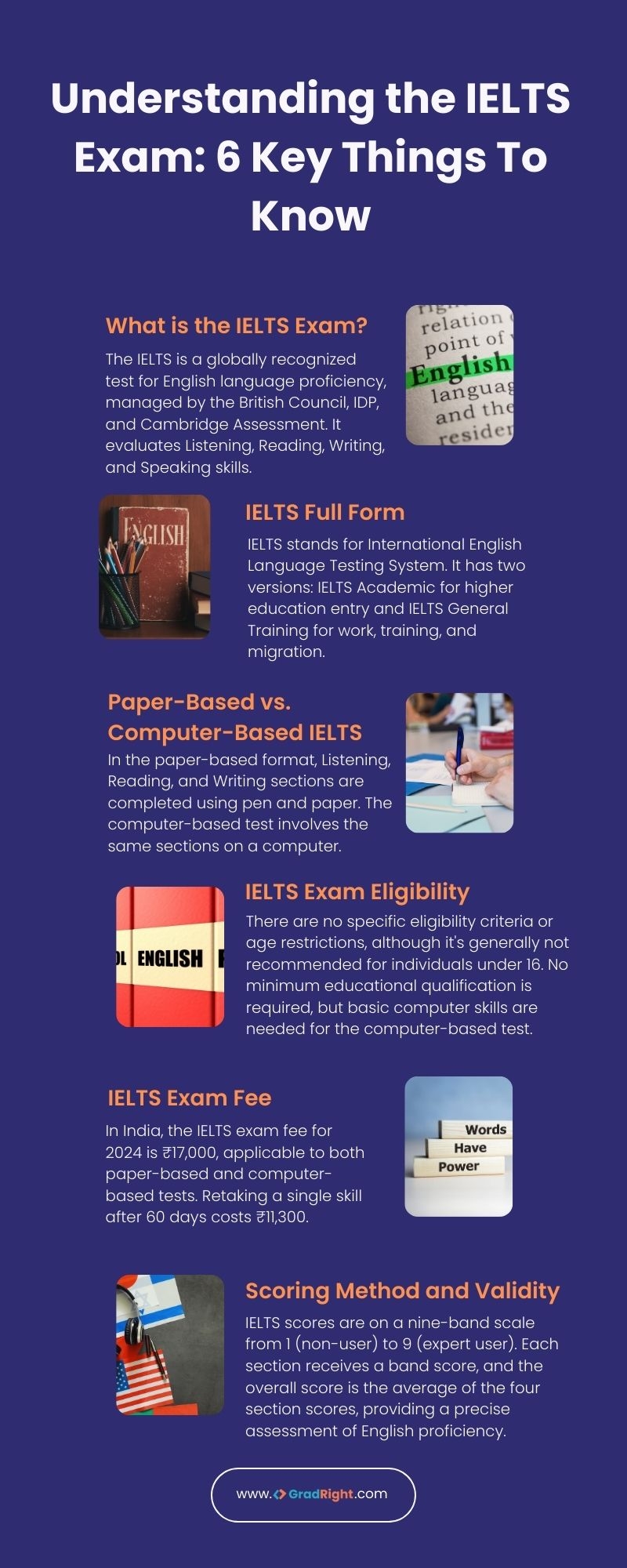The International English Language Testing System (IELTS) is a standardized test that measures the language proficiency of individuals who want to study or work in countries where English is the primary language of communication. It is recognized and accepted by over 10,000 organizations worldwide, including universities, employers, immigration authorities, and professional bodies.
IELTS is available in two formats: Academic and General Training. The Academic version is for those who wish to pursue higher education or professional registration in an English-speaking environment, while the General Training version is for those seeking to migrate to English-speaking countries for work or training programs.
IELTS: What is it?
The IELTS test assesses four language skills: listening, reading, writing, and speaking. Each section is designed to evaluate a candidate’s ability to understand, interpret, and communicate in English effectively. The test is scored on a scale of 1 to 9, with 9 being the highest proficiency level.
One of the key advantages of IELTS is its widespread recognition and credibility. Universities and employers around the world trust IELTS scores as a reliable indicator of an individual’s English language proficiency. Additionally, IELTS offers test takers the flexibility to choose from multiple test dates and locations, making it convenient for candidates to schedule their exams.
Preparing for the IELTS test requires practice and dedication. Many candidates opt to enroll in IELTS preparation courses or use online resources to improve their language skills and familiarize themselves with the test format. Mock tests and practice exercises are also helpful in building confidence and reducing test anxiety.
In conclusion, IELTS is a valuable tool for individuals looking to study, work, or immigrate to English-speaking countries. By demonstrating their English language proficiency through the IELTS test, candidates can open doors to new opportunities and achieve their academic and career goals. Whether you are a student, professional, or immigrant, IELTS can help you showcase your language skills and succeed in a globalized world.
We hope this article has provided you with a better understanding of what IELTS is and how it can benefit you in your academic and professional pursuits. Good luck on your IELTS journey!
